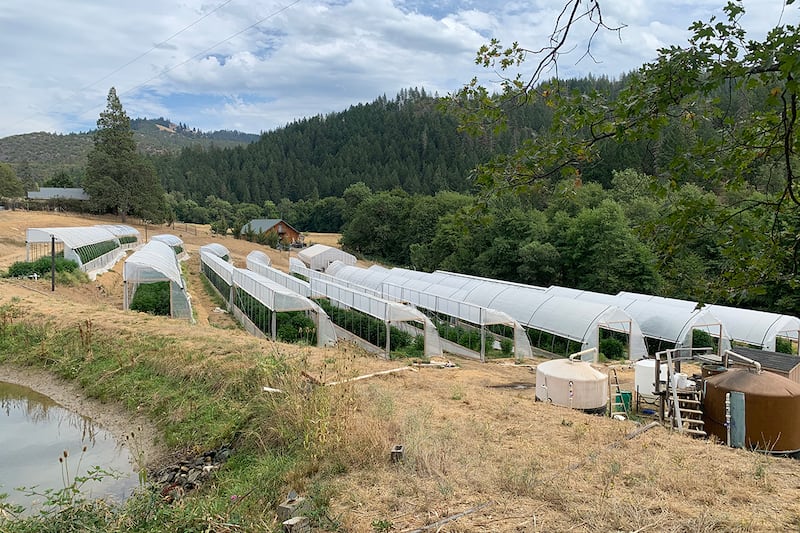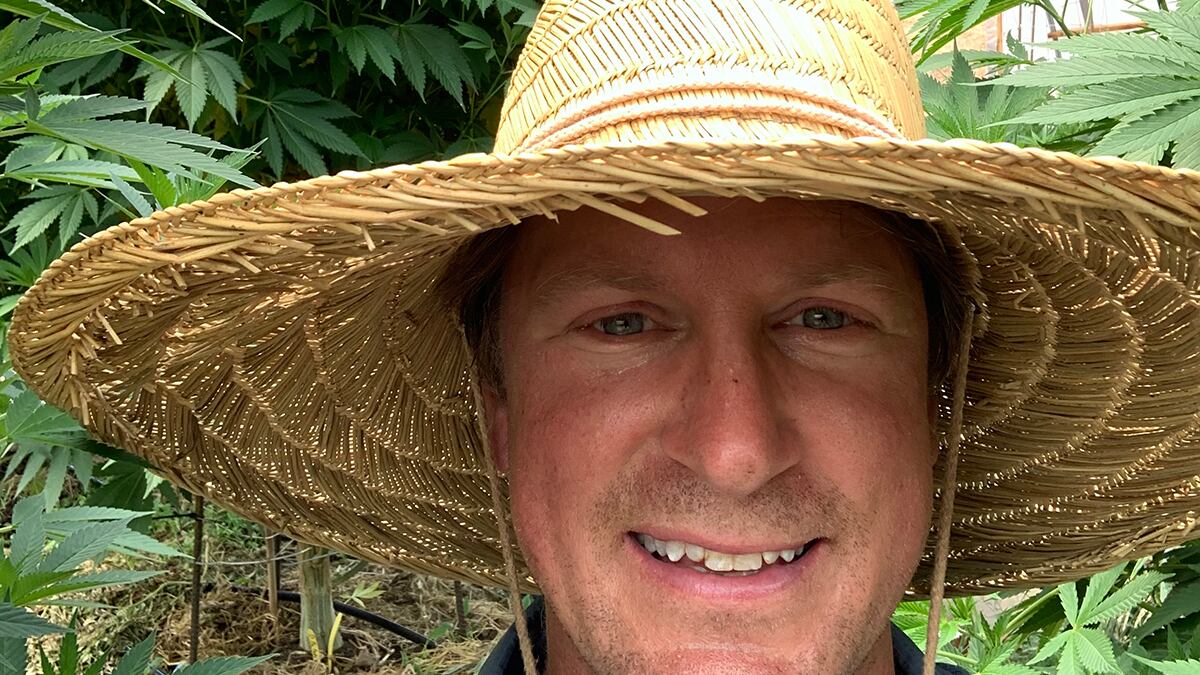Casey Branham’s regenerative organic cannabis farm in Jackson, Ore., isn’t called Phoenix Rising Farm because it sounds badass, but because the name captures the possibilities born of legalization.
“Phoenix Rising Farm came from this vision of the traditional market—or black market, if you will—falling away and [the emergence of] this new, legalized market where we can put our money in the bank and have access to these things like a normal business would,” Branham says.
It sounds pretty utopian, and it is—Branham, who co-founded the farm with his wife, Toni Branham, in 2014 (the year that recreational cannabis was effectively legalized in Oregon by the passage of Measure 91), has cultivated a 25-plus-year career in cannabis. Yet he can’t help fretting about the future of the industry, partly because he worries about its environmental impact.
“All these indoor farms are using a tremendous amount of electricity, which is increasing the carbon emissions into the atmosphere,” Branham says. That’s one reason he joined Weed Like Change, a public consumer education campaign created to raise awareness of the importance of ethically produced, environmentally sustainable cannabis.
Weed Like Change was created by the nonprofit Sun+Earth, an organization that offers third-party certification of cannabis grown under the sun, sans chemicals by fairly paid farmers. It has already attracted the attention of Oregon Congressman Earl Blumenauer, who is supporting the campaign by speaking at Electric Lettuce on Southeast Holgate Boulevard this Friday.
But the success of Weed Like Change may depend on how effectively farmers like Branham advocate for their products. “It’s a very competitive market, and mostly the consumer is focused on price and THC percentage,” he says. “But there is the base that cares about how the product was grown and how it was produced. Branding matters.”

WW: In 2015, you raised concerns about the negative effects of industrial hemp. Do you feel those fears have been realized?
Casey Branham: Farms like mine and a small handful of others in Oregon have taken steps to be regenerative in the way we produce cannabis—growing directly from native soil, using different techniques like mulching, not buying bottled nutrients, growing plants in companion with cannabis that we then use to feed the soil.
Those are ways to not only lower the carbon footprint and make a more sustainable product, but also provide the consumer with a product that we know is much more healthy, much more rich in all the cannabinoids, terpenoids and other products that come out of cannabis grown in that way.
How does the process of third-party certification work at Sun+Earth?
There’s a few things that are set up—growing practices, community involvement, what you’re contributing not only to the production of cannabis, but to the community. How do you treat your employees? Are you trying to pay them a living wage?
Are consumers focused on getting as high as possible as opposed to the quality of the high?
I think so, yeah. I think it’s kind of an American thing, like more is better. There’s a lot of people who are like, “Oh my God, I want the IPA that’s 8% alcohol or 9.2,” who are going for the heavy craft beer stuff. When [consumers are] equating THC percentage with quality, they’re missing out on the fact that that’s not the only thing.
In Oregon, it didn’t matter until 2014 when it went legal, and then it was required to get these potency tests. Until then, no one really cared—it was just whether it tasted good, whether it smelled good, and whether the effects were good. And I think regeneratively grown cannabis, you’re going to get the full experience, because when it’s grown in the native soil under the sun, you’re going to get the fullest expression of all those.
